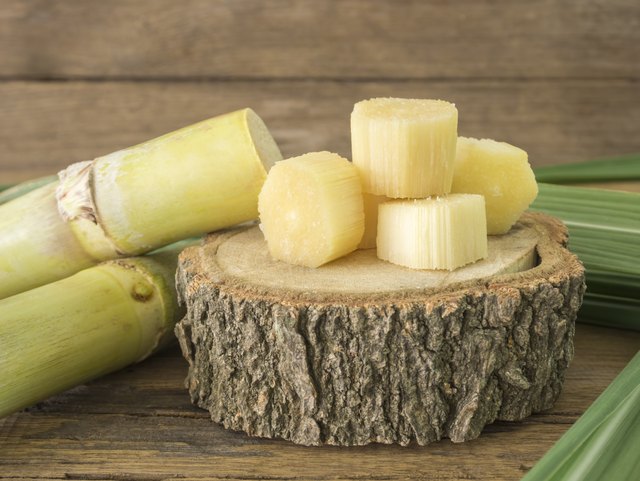Sugar and Cane: Unlocking the Secrets Behind Their Sweet Appeal
Sugar and Cane: Unlocking the Secrets Behind Their Sweet Appeal
Blog Article
Why Walking Stick Sugar Handling Chemicals Are Critical for Modern Sugar Refining
The function of walking stick sugar processing chemicals in contemporary sugar refining can not be overstated, as they are integral to improving both the performance of removal and the total top quality of the last product. Agents such as phosphoric acid and specific flocculants are utilized to remove contaminations, resulting in sugar that not only fulfills consumer assumptions yet also adheres to industry requirements.
Role of Handling Chemicals
The effectiveness of walking cane sugar processing pivots substantially on the calculated application of processing chemicals. These chemicals play a pivotal function in improving the performance and top quality of sugar removal and refining. From the initial stages of juice removal to the final purification actions, processing chemicals assist in numerous crucial operations.
In the removal stage, chemicals such as phosphoric acid and calcium hydroxide are employed to maximize the explanation procedure, aiding to get rid of impurities and put on hold solids from the cane juice. This not only boosts the return however likewise ensures the quality of the final product. In addition, representatives like flocculants aid in the fast settling of contaminations, therefore simplifying the overall process.
As the processing developments, chemicals are made use of in decolorization and condensation phases. Activated carbon and ion exchange materials offer to eliminate shade and smell, ensuring that the polished sugar satisfies customer top quality standards. Eventually, the role of processing chemicals prolongs past functional effectiveness; they considerably influence the sensory qualities of the end product, adding to market competitiveness. Therefore, the precise option and application of these chemicals are important for achieving optimal outcomes in walking stick sugar processing.
Key Kinds Of Chemicals
Cane sugar processing counts on a selection of vital chemicals that help with each phase of manufacturing. These chemicals play essential duties in making clear, bleaching, and cleansing the sugar drawn out from walking cane.
One key group of chemicals consists of flocculants, such as polyacrylamide, which help in the explanation procedure by advertising the aggregation and settling of pollutants. Furthermore, calcium hydroxide is typically used to neutralize acidity and assist in the elimination of non-sugar parts.
Lightening representatives, such as activated carbon and sulfur dioxide, are used to decolorize the syrup, resulting in a more clear end product. These chemicals assist get rid of color compounds that may influence the sugar's appearance and bankability.
Additionally, phosphoric acid functions as a pH regulator throughout the processing stages, making certain optimal problems for the chemical tasks associated with sugar extraction and purification.
Other important representatives consist of edta (ethylenediaminetetraacetic acid), which chelates metal ions that might catalyze unwanted reactions, and salt hydroxide, which assists in pH control throughout the refining process. Jointly, these chemicals improve effectiveness and guarantee a high-grade walking cane sugar product.
Advantages for Sugar High Quality
Commonly forgotten, making use of particular handling chemicals dramatically improves the overall quality of walking stick sugar. These chemicals play a pivotal duty in refining processes, ensuring that the end product fulfills stringent market requirements for purity and taste.

Additionally, processing chemicals help in achieving a regular granulation and structure, which are crucial for customer acceptance. By controlling the crystallization procedure, these chemicals make certain that the sugar crystals create original site consistently, causing a much more enticing item that liquifies well in numerous applications.
Furthermore, the use of these chemicals can enhance the shelf life of cane sugar by minimizing dampness absorption and microbial growth. Overall, the critical application of handling chemicals is necessary for providing high-quality cane sugar that fulfills consumer expectations and sector demands.
Environmental Influence Factors To Consider

Additionally, the energy-intensive nature of sugar refining, intensified by chemical use, typically causes enhanced carbon exhausts. This contributes to climate adjustment and raises concerns relating to the sustainability of present refining practices. Furthermore, the sourcing of these chemicals might entail methods that endanger biodiversity, such as monoculture farming, which minimizes the strength of agricultural environments.

To reduce these effects, sugar refiners are progressively checking out sustainable alternatives and adopting ideal techniques that lessen chemical usage. Executing extensive environmental monitoring systems can aid ensure that the refining process straightens with environmental standards and advertises biodiversity. Eventually, a balanced strategy that focuses on both sugar quality and ecological stewardship is crucial for the long-lasting feasibility of the sugar market.
Future Trends in Refining
As the sugar market grapples with the ecological challenges associated with typical refining techniques, innovative strategies are emerging to enhance both efficiency and sustainability. One considerable trend is the fostering of green chemistry concepts, which focus on the use of safe, naturally degradable processing Visit Your URL chemicals. This shift not just lessens environmental influence but additionally addresses consumer need for cleaner manufacturing methods.
One more encouraging development is the application of sophisticated filtration modern technologies, such as membrane splitting up and adsorption procedures. These techniques enhance the clearness and top quality of the sugar while lowering the volume of wastewater generated throughout refining. In addition, the integration of electronic technologies, including IoT and AI, is transforming operational efficiency by enabling real-time tracking and anticipating upkeep, thus lessening source waste.
Furthermore, making use of byproducts from sugar refining, such as bagasse and molasses, is gaining traction. These materials can be exchanged biofuels or value-added items, contributing to a circular economy within the market. Collectively, these trends signal a shift in the direction of even more lasting practices that not only improve operational performance but likewise line up with international sustainability objectives, guaranteeing the future feasibility of sugar refining.
Final Thought
Walking cane sugar handling chemicals are essential in modern sugar refining, considerably improving the performance and top quality of sugar extraction. The calculated usage of these chemicals not moved here only enhances the purity and flavor of the end product yet likewise guarantees consistent crystallization and texture. As the industry significantly focuses on sustainability, the adoption of environmentally-friendly processing agents is most likely to form future patterns in refining, eventually causing greater high quality products and extended rack life for customers.

Inevitably, a balanced approach that focuses on both sugar quality and ecological stewardship is necessary for the long-term practicality of the sugar sector.
Cane sugar processing chemicals are necessary in modern sugar refining, substantially boosting the efficiency and quality of sugar extraction.
Report this page